BLUE STAR
Heart2Heart Walk reaches final stages


Heart2Heart Walk reaches final stages

visit.
Join more than 75,000 members of Australia’s policing community at the health fund that’s run for police, by police since 1935.

As a not-for-profit provider we specialise in top-level cover, providing great value for money and complete peace of mind. Our hospital cover has no excesses, exclusions, or co-payments and we pay 80% back on most Extras services.*
Our fund was voted #1 of all private health funds in Australia in these categories.^
“
Having used it more, my family is appreciative of the benefit amounts paid on each
” Mark, ACT
TheAustralianFederalPoliceAssociationacknowledges thetraditionalownersandcustodiansofcountry throughoutAustraliaandacknowledgestheircontinuing connectiontoland,watersandcommunity.Wepayour respectstothepeople,theculturesandtheelderspast, presentandemerging.
Executive Editor


Alex Caruana | Phone (02) 6285 1677 www.afpa.org.au
Editor Brian McIver | brian.mciver@afpa.org.au





Publisher
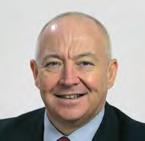


Boo Media is appointed by the Australian Federal Police Association as the authorised publisher of Blue Star









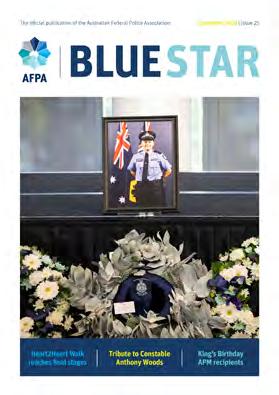




Boo Media PTY Limited
PO Box 19, Narrabeen, NSW 2101 Phone: (02) 8004 8612 | Fax: (02) 8004 8611 info@boodigital.com.au | ACN: 153 128 860
Disclaimer
Boo Media (“Publisher”) advises that the contents of this publication are at the sole discretion of the Australian Federal Police Association, and the publication is offered for information purposes only. The publication has been formulated in good faith and the Publisher believes its contents to be accurate. However, the contents do not amount to a recommendation (either expressly or by implication) and should not be relied upon in lieu of specific professional advice. The Australian Federal Police Association make no representation, nor give any warranty or guarantee concerning the information provided. The Publisher disclaims all responsibility for any loss or damage which may be incurred by any reader relying upon the information contained in the publication whether that loss or damage is caused by any fault or negligence on the part of the Publisher, its directors and employees.
Copyright
All advertisements appearing in this publication are subject to copyright and may not be reproduced except with the consent of the owner of the copyright.
Advertising
Advertisements in this journal are solicited from organisations and businesses on the understanding that no special considerations other than those normally accepted in respect of commercial dealings, will be given to any advertiser.
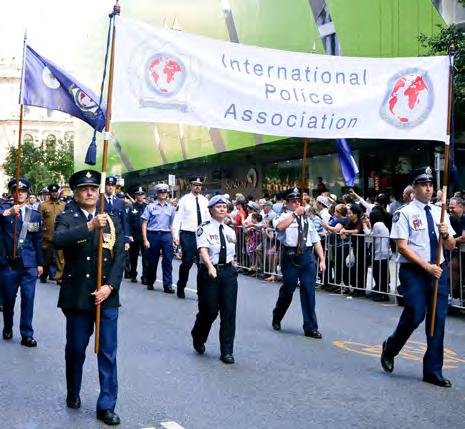
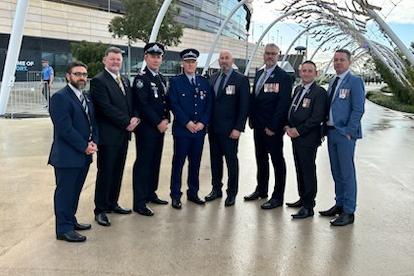
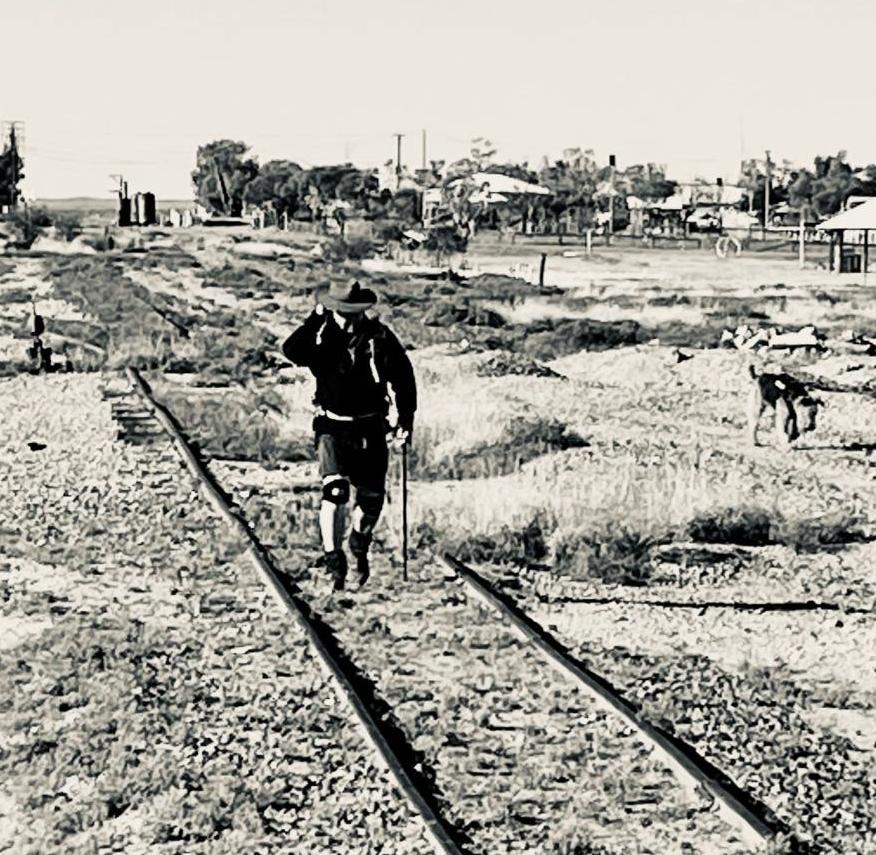

With a heavy heart, I attended the recent funeral of Constable Anthony Woods of the Western Australia Police Force. It was an emotional service, and I acknowledge the strength of his family, friends and colleagues on the day.
I would also like to pay respect to the Queensland Police Service Senior Constable Kym Slade, who recently lost her life at Loganholme station while on duty.
Both of these losses represent areas where the protections for police members could be significantly improved and remain a central part of both the PFA’s and the AFPA’s work and lobbying.
If you are struggling in the wake of these deaths, I implore you to seek support from your loved ones and your general practitioner. Lifeline provides invaluable 24/7 support and can be contacted anytime on 13 11 14.
The AFPA is quite mature in our preparation for EA negotiations. We are ready and waiting for the AFP to fulfil their obligations with the APSC and then trigger formal negotiations as soon as possible.
In the last Dispatch, the AFPA Legal team outlined the process that needs to occur before we can bargain. Due to the delays, we are exploring options for a majority vote to force the AFP to the bargaining table. Commissioner Kershaw has assured the AFPA that the AFP will not have to be dragged kicking and screaming
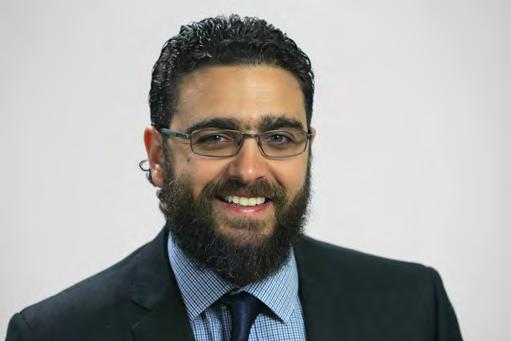
into the next phase, so we are hopeful that a majority vote determination won’t ultimately be necessary.
Please keep an eye out for further EA surveys from the AFPA. If you have an idea for the EA, please lodge it here: https://www. afpa.org.au/future-enterprise-agreement/
We are highly cognisant of the pay rises other police jurisdictions and Commonwealth departments have recently received, which have subsequently made the AFP an even more unattractive employer to work for with regard to pay, morale and environment. One of the enhancements that we are actively exploring for this round of EA negotiations is a Use of Force allowance for those members who may be required to take life or liberty during the course of their duties.
More broadly, we are also exploring options for all allowances to be superable.
During a recent meeting with Commissioner Kershaw, I presented some preliminary suggestions for an expansion of the salary packaging options available to AFP members, which could directly ease some of the cost-of-living pressures currently being experienced.
The AFP is currently very far down the list, both at Commonwealth agency level and when compared to other Australian policing services, in terms of the number and types of packaging options available:
The Commissioner has made an undertaking to fully explore all options – particularly the AFPA’s suggestions for packaging childcare and private health insurance costs.
While salary packaging falls outside of EA negotiations, these are just some of the suggestions the AFPA is exploring to help members concurrently with our EA advocacy and prep work.
The Police Association of New South Wales (PANSW) are currently involved in a dispute with the Federal Government about their members’ concessional caps for superannuation (more detail can be found here - https://www.pansw.org.au/knowledgebase/ article/KA-01277/).
much notice as possible). For those members unable to attend, please contact the AFPA via phone or email for assistance with any questions you would like to ask.
The AFPA is very happy to have secured an allowance to (partially) mitigate hardships in working at Defence localities in Pine Gap, Exmouth and Geraldton. Members deployed to Pine Gap and Exmouth will receive $30,000 annually, while those deployed to Geraldton will receive $10,000 annually.
We are adamant that this is only a first step towards strengthening the viability of the AFP’s PSOs guarding remote locations.
We continue to engage with both remotely deployed PSOs (thanks to AFPA PSO Delegate Rex Tion for his assistance) and the AFP Executive to introduce further measures to properly acknowledge the hardship of working in these and other similar locations.
If any AFPA members (in particular ACT Policing members) are affected by these industrial actions, please contact the AFPA. PANSW has assured us that NSWPOL will be ready to assist AFP and ACTP, especially in cases of grave danger or threat(s) to life. Their dispute is with the Federal Government, NOT with the AFP or AFPA members.
There are a number of ongoing elections to fill the vacancies in our Delegate and Zone Convenor network. The Australian Electoral Commission (AEC) is managing the entirety of the election process and will reach out directly to the members involved to communicate the next steps.
There are still some vacant positions; filling these positions with the right people as soon as possible remains a priority for the AFPA. I encourage everyone to consider applying to become a Delegate or Zone Convenor. More information on these roles can be provided to interested members; please contact afpa@afpa.org.au
Musters will be held in the near future in all capital cities and as many regional locations as possible.
I will be running the musters together with the AFPA Legal and Membership teams, with AFPA Delegates and Executive members also attending as their availability allows.
Understandably, members will likely be most interested in speaking with
I am happy to confirm that we are endeavouring to conduct musters at all of the above locations in the upcoming period.
We feature a tribute to Constable Anthony Woods on page 22.
Former AFP member Craig Skinner shares an overview of the International Police Association on page 32.
AFPA Media and Government Relations Manager Troy Roberts provides a personal account of a recent health scare on page 14.
We pay tribute to the Australian Police Medal (APM) recipients recognised at the recent King’s Birthday honours on page 34.
And AFPA member Jason Byrnes has kindly provided a retrospective article examining the police response to a savage murder in Canberra, 1983 on page 28.
As always, please take care of yourselves and your well-being as much as possible at work.
In unity,
Alex Caruana PresidentPlease watch your emails for more information, as we will send targeted information to you based on your work location (with as
We support our NSW colleagues’ right to engage in industrial action and wish them all the best towards resolving this dispute in their favour.
us about the EA; however, we will also be ready to answer any general industrial or welfare queries.
This past month, the Membership team have had the absolute pleasure of meeting some of our members as part of a series of musters around the country. It is always wonderful to hear from you all directly. I walked away not only grateful for the opportunity but also recommitted to ensuring that our members know the services, benefits and perks they can access as an AFPA member.
In addition to the legal and industrial support that comes with your membership, the tireless work that is underway to support the next EA and other general advocacy, there is a suite of membership services that we hope you take advantage of! We have this information hosted on our website, but if you prefer a more personal approach, we’re more than happy to guide you through our offerings over the phone or via email.
The AFPA is acutely aware of the current economic situation facing all Australians at the moment. Interest rates have been increasing since 2020, with the RBA’s cash rate rising from 0.10% (4/11/2020) to 4.10% (7/6/2023). With this comes significant consequences for our members’ bottom line’. Discretionary items such as eating out, Netflix, and gym memberships are usually the first to go.
time they first contact the AFPA to discuss joining. A significant portion of these pre-existing issues relate to areas covered by various AFPA grants and financial support schemes; as such, the AFPA has a financial duty of care to fully assess any such issues before approving new members.
In some of these cases, back-payment of membership fees is required before we can approve and assist a new member.
The expression, “You would never not insure your house in the hope that it never burns down,” is especially relevant when considering whether to join the AFPA. We hope that you will never have to engage legal assistance or seek critical illness payments or death benefits, but members can take solace in the fact that they are there if needed.
Please remember your Association fees are tax-deductible, equating to a return of approximately 30% on them at tax time.
You can also save a significant amount of money by utilising our member discounts, shopping vouchers, and other exclusive deals we’ve directly negotiated for you.
One AFPA member purchased a ‘big ticket’ item in one of our Christmas promotions — saving them the same amount as their annual subscription fees with one purchase. It is expected that most AFPA members could typically save over $1600 per year –we have a breakdown on the next page for you to read through.
As always, the Membership team is here to support and assist –and we can only do this if you reach out to us!
We are also seeing an increase in pre-existing issues coming through our area. A pre-existing issue is a condition (such as an ongoing industrial matter with the AFP, a long-term medical condition, or a compensable physical or mental injury incurred at work) that a potential new member discloses at or around the
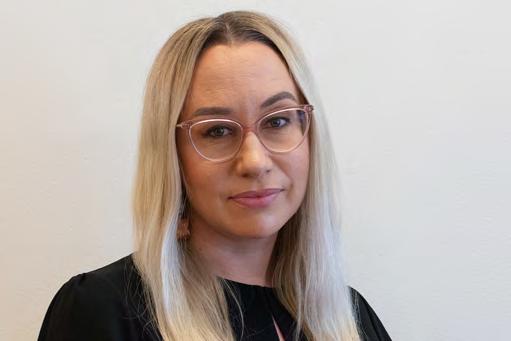
Our members are vital to us; when they reach out to cancel their AFPA membership due to budgetary restraints it concerns us! Whilst it is understandable that people want to save money in certain areas of their lives, we urge each and every member to ‘ride the tide’ wherever possible and maintain their membership of the AFPA.Member Support Administrator Courtney Posantzis Courtney Posantzis, Member Support Administrator Regular Items


Unionism in Australia has a long and storied history, playing a crucial role in shaping the nation's labour landscape. Since the 1800s, in Australia, labourers have formed associations to represent their interests, and one of the first important victories came with the Stonemasons winning the right to an eight-hour day in 1855. While I could wax lyrically about each and every benefit unions have brought to the industrial landscape, I shall exhibit restraint and give brief mention to what I consider to be two of the most important benefits derived through the union movement: the creation of a court to arbitrate industrial disputes over pay and conditions in 1904, and the introduction of a fair and reasonable wage in 1907, the basis of the national minimum wage we have in Australia today. Since that time trade unions have continued to be instrumental in fiercely advocating for workers' rights, fair wages, improved working conditions, and better social and economic standards. There are significant benefits of unionism in Australia, and being a member of the AFPA is no different. Your membership enables us to continue to empower you for a brighter and more equitable future.
One of the primary advantages of unionism lies in its ability to provide workers with collective bargaining power. By joining
forces through your membership with the AFPA, members can negotiate with employers on equal terms, ensuring their voices are heard and their rights are protected. This bargaining power helps in securing fair wages, better benefits, and improved working conditions, levelling the playing field between you and AFP management. The AFPA represents around 60 per cent of the AFP workforce and, with this clear majority, has great influence during bargaining for working conditions. We always welcome new members to add their voices to the collective.
Over the years, unions in Australia have successfully campaigned for higher wages and better benefits for workers across various industries. By setting minimum wage standards and advocating for pay raises, unions have played a pivotal role in ensuring workers can earn a decent living and support their families. Moreover, unions have been instrumental in fighting for additional benefits such as paid leave, healthcare coverage, and retirement plans, enhancing the overall quality of life for workers. It therefore, comes as no surprise that it has been empirically demonstrated that enterprise agreements that are bargained for by unions provide better pay for their members.
As seen in Figure A, data from the Fair Work Commission reveals that in each fortnight from 15 June 2022 onwards, enterprise agreements lodged by unions have consistently delivered significantly higher wages. Over the previous year, the data from the Fair Work Commission demonstrates the advantages of union enterprise agreements, which had an average annual wage increase of 3.8% per annum compared to the 3.3% for non-union agreements. Aside from all the other benefits derived by unions, it is abundantly clear that membership of a union results in significantly higher wage rises than non-union enterprise agreements.
Safety in the workplace is a fundamental right of every employee, and unions have been influential in campaigning for safer working conditions across industries. Having union members in the workplace increases health and safety awareness by up to 70%. Furthermore, unionised workers are more likely than their non-union coworkers to speak up about safety problems.
Unions advocate for proper safety protocols, training, and equipment, which reduces the risk of workplace injuries. This approach not only protects workers but also benefits employers by minimising downtime and workers' compensation expenses. In demonstrating how vital unions are to workers' safety, an American study published in the BMJ Occupational & Environmental Medicine Journal in 2018 found that a 1% decrease in unionisation resulted in a 5% increase in occupational fatalities.
Unionised workers enjoy greater job security than their nonunionised peers. Figure B compares non-union members' to unionised members' perceptions of job security, and throughout the years, it is evident that union members feel more secure in their employment.
Unions negotiate contractual agreements that involve clauses that protect workers from unreasonable lay-offs or dismissal, providing employees with peace of mind knowing that they have a lower risk of sudden job loss. The AFPA can and will protect you from arbitrary employer actions and provide legal support in the event of a workplace issue that could result in disciplinary action or dismissal.
Since their very inception in Australia, fighting inequitable economic relationships in the workplace and wider society
was at the core of the union movement. Unionism has been fundamental in narrowing inequality by ensuring wealth is more evenly distributed.
The relationship between union membership and inequality is strong, and countries with higher levels of union membership have lower rates of inequality. The reverse is also true; as union membership declines, inequality increases. This is why it is important to join your union; the AFPA can only bargain to reduce income inequality with the collective power of its members.
The principle of social justice underpins the union movement in its efforts to not only set workplace standards but also change society as a whole. Unions help win progressive policies, reduce disparities, and advocate for better education and healthcare that benefit all workers. A fundamental concept of the union movement is the elimination of discrimination in the workplace, which is achieved by actively encouraging employers to create equal and diverse environments.
Unions have always played a prominent role in shaping a more just and equitable society. The AFPA is proud to continue this legacy.
We have come a long way since the early days of unionism, or indeed the days of WorkChoices introduced by the Howard government in 2005, which impacted the ability of employees to strike, bargain without collective representation, removed the “no disadvantage test,” and restricted union activity. Unionism in Australia has proven to be a powerful force for good, empowering workers and fostering a more inclusive and fair society. Through collective bargaining power, improved wages and benefits, safer working conditions, and advocacy for social justice, unions have been at the forefront of securing workers' rights and improving their quality of life.
The AFPA is ready to fight for a new Enterprise Agreement that gives you the pay and conditions you deserve as Australia’s national policing agency. This is why it is crucial to join your union, and with collective power, the AFPA can fight for your workplace rights. To this very day, the truth of the trade union slogan rings true, ‘united we bargain, divided we beg’. As Australia’s labour landscape continues to evolve, the essential role of unions in shaping a brighter and more equitable future remains undeniable.
Here are some tips to introduce the key concepts.
◾ Show them how money decisions are made – Consider taking your kids on a shopping trip, where you can discuss the difference between needs and wants. A grocery shop is a great place to start because you can look at things like essentials, such as fruit and veggies, versus indulgences. Once they get the idea, you can start to let them practice making some of the choices about how the household budget should be spent.
◾ Take kids to work or explain what you do – A key lesson for children is that money isn’t free; instead you have to earn it through work. To reinforce this, think about taking your kids on a trip to your workplace or explaining to them a bit about your career, the hours you’re required to be at work and what payday is.
◾ Think about pocket money – Consider giving your kids the chance to earn their own money through work around the house. Common pocket money chores include cleaning up their room and shared areas, helping to wash up or unload the dishwasher, setting the table, taking rubbish out and cleaning up after pets. If they’ve been earning pocket money for a little while, you can also introduce the concept of spending today on something small or saving up money for a bigger item in the future.
◾ Open a kids saving account – A great way to further kids’ education on saving is to set them up with their own bank account.
◾ Join in on the saving too – The best activity is often a shared one. Think about joining your kids’ savings journey by opening a savings account and contributing to your children’s’ future at the same time. Together, you and your kids can bank together and when they’re old enough, they may even be able to repay the favour and teach you a thing or two about how to build your balance.
The great news is you don’t have to be any sort of financial expert to give your kids a solid start.
Police Bank is a community-based bank started by Police for Police and we are here for you and the broader policing family. If you have any questions or are interested in how we can help you, please don’t hesitate to speak to one of our team members in the Contact Centre on 131 728 Monday to Friday from 8am to 6pm, or visit www.policebank.com.au

For me, 24 February 2023 started out like any other day. A busy morning organising a 5-year-old and then heading into work. The only difference this time was a slight ache in my chest and back and an upset stomach. The joys of getting old, I thought.
For years I have had minor gastric issues, and for years GPs have been telling me that the sensation in my chest was a result of this. The solution was to take some Quickeze and a shot of Gaviscon. This had been going on for some time and provided reasonably quick relief.
cart myself off to the hospital, as things weren’t getting better. I grumbled and moaned about it, but I knew she was right. Something was very wrong.
So off to the hospital I went, walking into the Queanbeyan emergency department and telling them I had some weird chest sensations and felt terrible. I was moved quickly into a bed, where I informed the treating doctor of my symptoms and what I suspected the issue was.
The staff at the Queanbeyan Hospital were fantastic; they swung into action and started treating my gastric issues and symptoms. The doctor also said they would take some blood to check my heart “just to be on the safe side.”
All things that I put down to ‘life’ and having a young child.
Throughout the day, I felt off — but Quickeze tamped down the pain in my chest and back. I thought it was just gastric reflux again and largely disregarded it.
Over the weekend (25 and 26 February), the sensation in my chest and back came and went depending on the amount of antacid I was taking. At one stage, the Quickeze was going down quicker than Skittles, but it was keeping things level. My sleep was okay, which was an improvement over the previous few weeks. 27 February, I woke up and felt downright terrible. The sensation in my chest and back was there again, and my stomach was churning. It was the worst I have felt in a long time, but I decided to push on and go to work. I lasted until 2:00 pm and then had to declare the innings for the day. I drove home, put myself to bed and slept until the next morning.
When I woke up on 28 February, not much had changed. In a lot of ways, I was lucky that I woke up at all. Went to work as I had meetings booked and things to do, but I felt terrible. Not even Quickeze or Gaviscon were making a dent, and a bit of brain fog had kicked in at the stage as well. Again, I lasted until 2:00 pm and then drove myself home. I was struggling at this stage.
I eventually made it home and crawled into bed. Around 5:00 pm, my partner came home from work and strongly suggested I
I’m very glad that he did; roughly 20 minutes later, he returned and congratulated me for having a heart attack and surviving.
I was blown away but also strangely calm and accepting.
My experience wasn’t like you see in the movies, where a person suddenly clutches their chest and drops to the ground.
I was still functioning overall; only a few days earlier, I’d done a 5km walk around Lake Burley Griffin with the Heart2Heart crew and felt fine.
The benefit was that we now knew what we were treating. A damn heart attack. A million things went through my mind, but the only thing I remember clearly was the doctor telling me that I was stable, I would be all right, I wasn’t going to die, and that they could fix me.
If I had been a fly on the wall watching this, the view would have been calm and low-key. I guess I can thank the job for that. Taking in the information, accessing it, and having an expert telling me I was going to be okay kept me level. From there, the hospital staff did an amazing job; I was there for a few days before being transferred to The Canberra Hospital (TCH) for surgery.
I am the first to admit that I was not looking after myself as well as I should have been. Exercise had taken a back seat, convenient eating was the easiest option, work was neverending, and I wasn’t sleeping well.
The TCH doctors and nurses were just as fantastic as the Queanbeyan team. People may have read about issues at TCH — but from my experience, I can’t sing their praises high enough.
They treated me very well, and the delays in my surgery were down to things we see in the AFP and ACT Policing: a lack of resources.
On the day of the surgery, I think I was number 15 in line. Here we have a medical team, tinkering with people’s hearts, and they had already done around 15 procedures before mine: that’s a long and stressful day. We all know how dangerous fatigue can be in policing; it is the same for surgeons, doctors, and nurses in highdependence wards in hospitals.
The procedure went well, and they identified and fixed the issue. Looking back over the last few months, there were a tonne of warning signs that I missed, or to be completely honest, just ignored.
I ignored my slightly swollen feet, I explained the sensation in my chest away, and I was already used to poor sleep. These things were not one-offs; they’d been around for years. If I had paid attention, and been more forceful with my health and GP, then maybe I would not have experienced what I did.

The main positive (and there are way more positives than negatives after my experience) is that this was a blessing in disguise. My exercise is back on track, my diet is much better, my sleeping is improving, and I feel a thousand times better overall, which is also improving my mental health. The negative is that I had a heart attack. But I survived.
What’s the moral of this story? Do not ignore your health; if things don’t feel right, see a doctor. If you’re not happy with the initial diagnosis, get a second or third opinion. Always review, assess, and reassess your health.
I’ve included a few relevant links and QR codes for treatment and support services. Please use them if this happens or has happened to you.
As Baz Luhrmann said in Everybody’sFree(toWearSunscreen) , your body is the greatest instrument you’ll ever own.
heartfoundation.org.au
australianhearthealth.org.au
aihw.gov.au/reports/heartstroke-vascular-diseases/ hsvd-facts/contents/about
The Heart2Heart Walkers set off from Canberra on 26 June for Lambert in the Northern Territory, the start of their epic walk from the centre of Australia back to Parliament House.
The Heart2Heart Walk was established to raise awareness of first responder mental health and wellbeing, including of dangers such as suicide, post-traumatic stress disorder (PTSD) and premature mortality.
Participants, comprising Australian first responders and allies, are walking over 2000 kilometres from the centre of the continent (Lambert) to the heart of the nation (Parliament House), raising funds and engaging with government and other stakeholders along the way.
By now, organiser Vince Pannell’s shoe leather is wearing thin, and his English complexion is perhaps a bit browner than usual. But his daily step count since starting the Walk and the lasting friendships he’s forged along the way have considerably boosted his mental wellness and happiness.
After a distinguished career, Vince is in the process of separating from the organisation and has long been cognisant of the dangers to mental health that police are routinely exposed to.
Detective Sergeant Vincent Pannell APM is the man leaving the AFP and packing his uniform away for the last time. Vince, by comparison, smiles more easily and walks taller than Vincent. He is still just as quick to crack a joke as D/Sgt Pannell APM, but perhaps his sense of humour isn’t as dark as it used to be.
When I spoke to Vince just a few weeks before he set off, we were at the AFPA National Office down the road from EBB. As always, Vince arrived with his Airedale, Margie. As always, the first order of business was a cuppa for Vince and a bowl of water for Margie. By this stage, Vince was almost at the end of a years-long plan to establish the Walk. Even though he had spent countless days arranging all of the logistics, his enthusiasm hadn’t waned. He spoke excitedly of new sponsors he had managed to wrangle and of plans to host a series of pop-up events in remote communities along the way to Canberra.
Since setting off, Vince has kept in close contact with the AFPA with regular photos and WhatsApp messages, and we’ve included some of the stunning images Vince and the other Walkers have captured within this article.
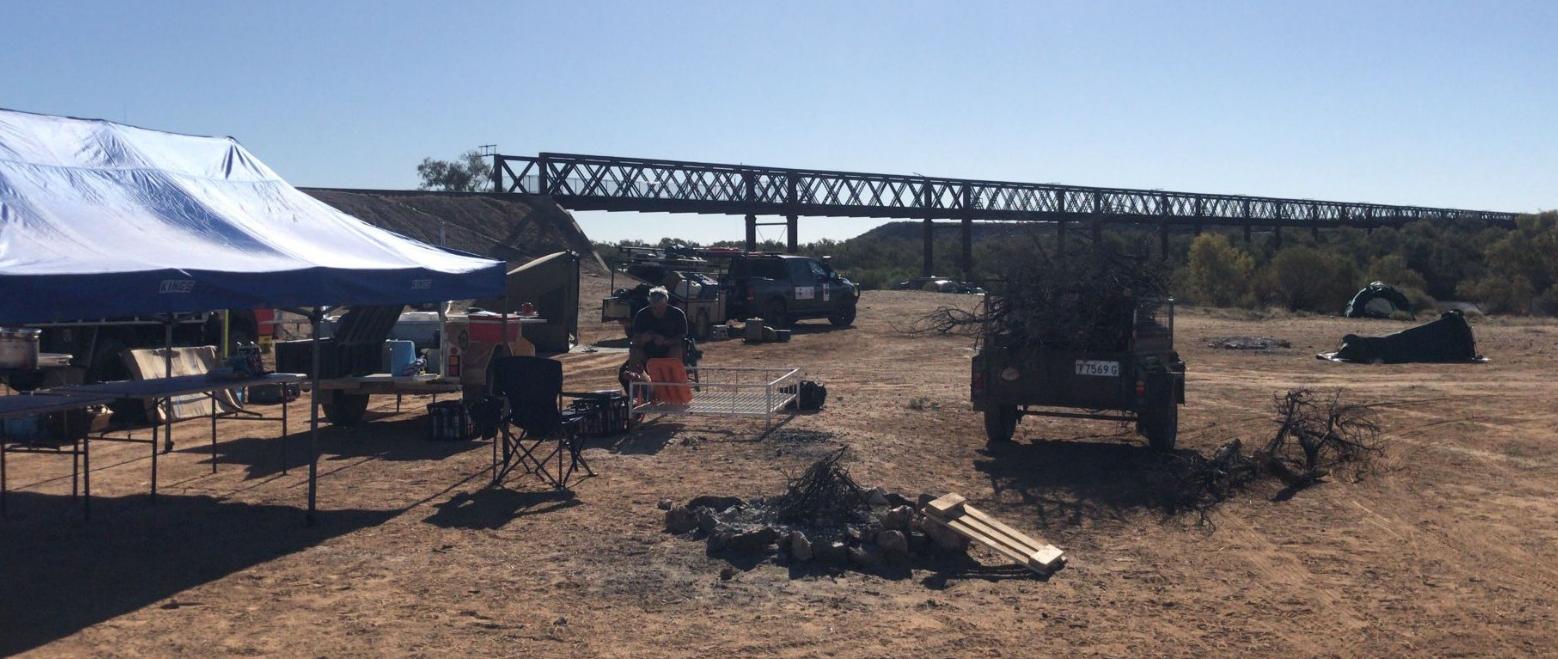
Live tracking of walkers (https://experience.arcgis.com/exp erience/48f5db03a6c64fcca673cfd c7b3d99f4)
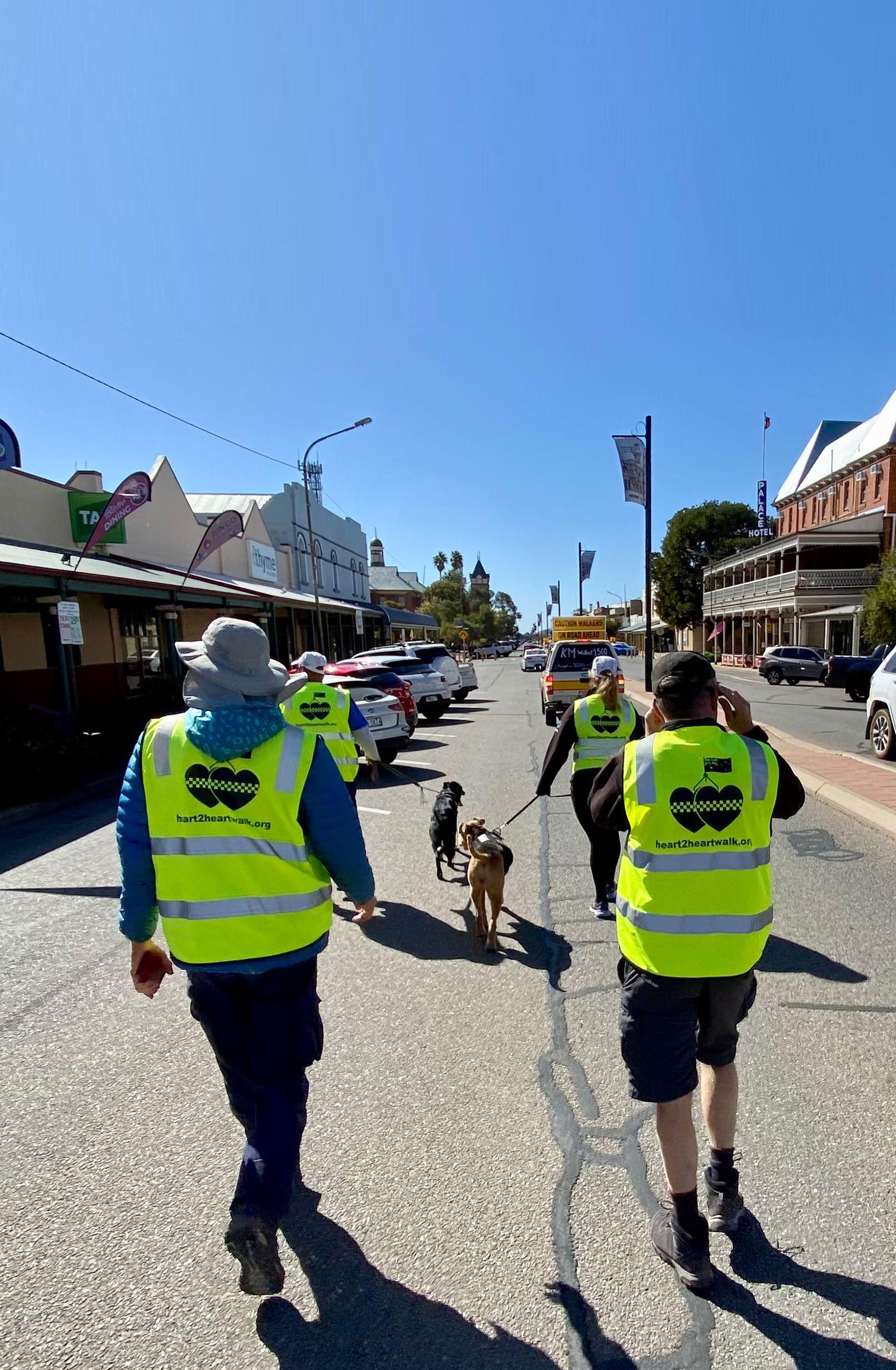
Make a donation to Heart2Heart (https://heart2heartwalk. gofundraise.com.au/)
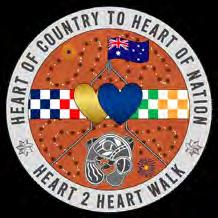
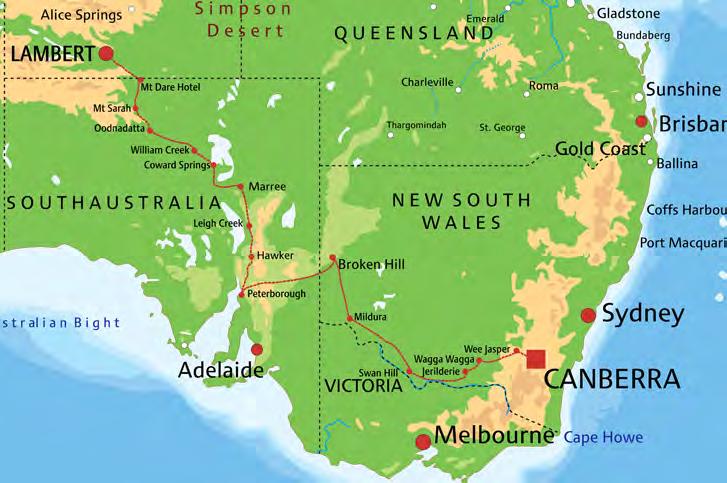
Heart2Heart Walk 2023 cont’d
FINAL DAYS OF THE Heart2Heart WALK:
Tuesday, 26 September 2023: Arrival into the ACT
◾ 30km walk from Brindabella Valley (NSW) to Uriarra Village (ACT)
08:00am Depart Brindabella Valley for ACT Border (Picadilly Circus)
12:00pm
Brindabella Valley
H2H Walkers and Support Team met by ESA Senior Management Picadilly Circus – NSW/ACT Border –Brindabella Road
4:00pm Arrive Uriarra Village
Wednesday, 27 September 2023: Uriarra to Government House Gates
◾ Approximate 24km walk
◾ Welcome to Country at Government House Gates
10:00am Depart Uriarra Village
3:00pm ◾ Arrive Government House
◾ Welcome to Country and Smoking Ceremony
◾ Handover of Message Stick
Uriarra Village
Uriarra Village onto Brindabella Road and the Cotter Road
Government House Gates
Thursday, 28 September 2023: Heart2Heart Walk Family & Supporters Walk Day
◾ Approximate 12km walk from Government House Gates to Parliament House
08:00am Registration & Breakfast Government House Gates
09:00am Depart Government House Government House Gates to National Emergency Services Memorial (NESM)
11:00am Memorial Service National Emergency Services Memorial (NESM)
11:20am Depart NESM for National Police Memorial (NPM)Lake Burley Griffin
11:40am Prayer of Remembrance National Police Memorial (NPM)
11:45am Depart NPM Depart NPM for Parliament House via Kings Avenue
12:25pm Arrive at Parliament House (Heart of Nation)Parliament House
12:30pmHeart of Nation formal event Parliament House
From 2:00pmPost Walk informal function Canberra Services Club, Barton
The final day of Heart2Heart will see Walkers start at Government House and finish at the National Police Memorial on the day before National Police Remembrance Day. The last stage of the Walk will be to the steps of Parliament House in order to present the Heart2Heart baton to Prime Minister Anthony Albanese in a symbolic gesture.
Heart2Heart PODCAST LINKS
Day 88 - Arrival into ACT
26 September 2023
•1: Depart Brindabella Valley for ACT border
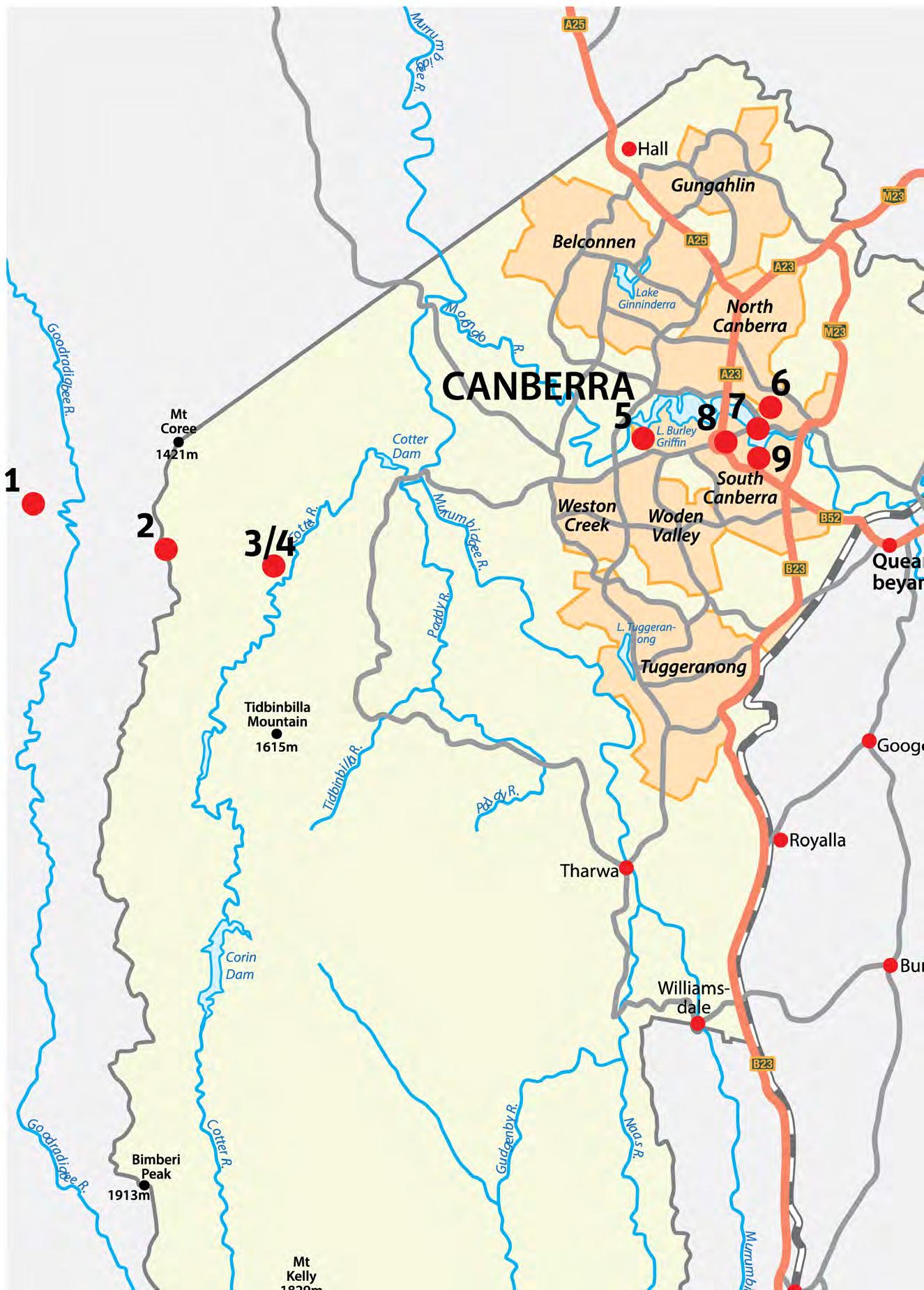
•2: Walkers and Support Team met by ESA senior management - Piccadilly Circus
•3: Arrive Uriarra Village
Day 89 - Uriarra to Government House Gates
27 September 2023
•4: Depart Uriarra Village
•5: Arrive Government House
Day 90 - Heart2Heart Walk Family & Supporters Day
28 September 2023
•6: Service at National Emergency Services Memorial
•7: Prayer of Remembrance at National Police Memorial
•8: Gather at Parliament House
•9: Post Walk function at Canberra Services Club, Barton
your normal weekly earnings, depending on the number of hours you are able to work. This includes regular overtime, penalty rates, and similar allowances.
You are entitled to payment of your reasonable and necessary medical expenses, including surgery and rehabilitation for the injuries suffered whilst at work3. This is a lifetime entitlement under the Comcare compensation scheme.
Should a claim for other benefits be finalised with Comcare, your entitlements to ongoing payment to your reasonable and necessary medical expenses continue as long as you require such treatment, and it is considered reasonable and necessary.
You can also claim back travel expenses, which can be incurred when attending treatment provided, rehabilitation, etc.
If you are an employee of the Australian Federal Police and suffer a work-related physical or psychological injury, you may be eligible to receive compensation under the Safety, Rehabilitation and Compensation Act, 1988 (‘the Act’).
If your injury occurred at work or was significantly contributed to or aggravated by work1, you should report your injury to the AFPA and submit a workers compensation claim form along with a Certificate of Capacity from your treating General Practitioner to Comcare.
Comcare is the workers compensation authority for government agencies and statutory bodies including the AFP. After you submit a workers compensation claim, Comcare will determine your claim. Should your claim be accepted, under the Comcare scheme, you may be entitled to:
1. Payment of weekly wages;
2. Reasonable and necessary medical treatment and rehabilitation expenses;
3. Compensation for permanent impairment OR non-economic loss;
You are entitled to payment of weekly earnings at a rate determined by the legislation for all periods you are unfit for work2
If you cannot return to work, you are entitled to receive 100% of your normal weekly earnings (NWE) for the first 45 weeks you are off work. If you can return to work, but not to your pre-injury hours, you are then entitled to a top-up payment.
After 45 weeks of total incapacity, if you are still unable to return to work, you are then paid at the rate of 75% of your normal weekly earnings.
If you are able to return to work, but you are working less than usual hours, you will generally receive between 80% to 100% of
If you suffer a permanent impairment as a result of your workplace injury, then you may be entitled to a claim for lump sum permanent impairment benefits4. This does not impact your ongoing benefits to compensation for weekly wages or medical expenses.
There is no time limit within which to bring your permanent impairment claim, although you must be assessed with at least 10% whole person impairment (‘WPI’) in accordance with the relevant Comcare-approved Guides; or if you suffer a hearing loss injury, at least 5% WPI.
If your injuries have been caused through the fault or negligence of your employer, the Act requires you to choose between a common law claim for damages or a lump sum permanent impairment benefit (you cannot claim both and once the election is made, and it cannot be changed)5
To be entitled to pursue a common law claim, you must have a permanent impairment assessment of at least 10% WPI and such a claim must be made within three years from the date of your injury.

Additionally, a common law cause of action arising from the negligence of your employer due to your workplace injury is limited to non-economic loss damages and capped at $110,000.00.
Regardless of whether you choose to pursue a permanent impairment claim or a common law claim for the negligence of your employer, you will still be entitled to receipt of your weekly wage benefits and medical expenses.
In the event of a dispute, that is, if Comcare deny liability for your claim, payment of wage benefits or request for various medical expenses, you are able to seek a review (also known as a ‘reconsideration’) and if a review is not successful, then you
Dilan Kasturi, (Associate)Have you been left out of a will?
Have you been left out of a will?

Carroll & O’Dea’s Lawyers have extensive experience and expertise in relation to estate disputes, both challenging and defending wills. We also have extensive experience in drafting and reviewing powers of attorney, enduring guardian documents, acting for executors, beneficiaries and claimants, mediations of estate disputes, and disputes regarding superannuation, trusts and other property.
A discounted rate on wills and related documents is offered to all AFPA members.
wills
enquiry@codea. com.au
enquiry@codea. com.au www.codea.com.au

NO
WIN.
Level 18, St James Centre, 111 Elizabeth Street, Sydney, New South Wales, 2000 Liability limited by a scheme approved under Professional Standards Legislation. ©Carroll & O’Dea Lawyers
are able to make an application to the Administrative Appeals Tribunal (‘AAT’) for a decision.
Please note that there are strict timeframes for the lodging of requests for review and application to the AAT.
You have 30 days to request a review after you receive an adverse determination from Comcare. After a review is conducted, Comcare will issue the outcome under cover of a ‘reviewable decision’.
An application must be lodged with the AAT within 60 days from the day the reviewable decision is received.
We provide AFPA Members a simple, seamless process guiding you along the way. We have a great team at Carroll & O’Dea Lawyers who can help you, without fuss and within a short time frame. Should a dispute rise in your claim, or you would like further advice regarding any aspect of your claim, please contact Carroll & O’Dea Lawyers on 1800 059 278
Carroll & O’Dea Lawyers Level 18, St James Centre, 111 Elizabeth Street, Sydney, New South Wales, 2000 Phone: (02) 9291 7100 | www.codea.com.au

1 Sections 5A(1) & 5B(1) of the Safety, Rehabilitation and Compensation Act, 1988
2 Section 19 of the Safety, Rehabilitation and Compensation Act, 1988
3 Section 16 of the Safety, Rehabilitation and Compensation Act, 1988
4 Section 24 of the Safety, Rehabilitation and Compensation Act, 1988
5 Section 45 of the Safety, Rehabilitation and Compensation Act, 1988
For all matters including personal injury and workers compensation, please complete our enquiry registration www.codea.com.au/contact-us/
In June, Constable Anthony Woods of the Western Australia Police Force was run down by a man driving a stolen car. Tragically, Anthony later died from his injuries.

A police member losing their life due to a deliberate attack is truly one of the worst things that can happen in a policing career.
For Anthony’s death to have come so soon after those of QPS Constables Matthew Arnold and Rachel McCrow is especially cruel.
I am, as always, committed to preventing or mitigating occupational violence and avoidable harm in policing.
I was honoured to have been able to represent the AFPA membership and attend Anthony’s memorial service earlier this month. I would especially like to recognise the strength of his wife, Emily, in delivering a moving address. Thank you Anthony, we will remember you. In solidarity, Alex

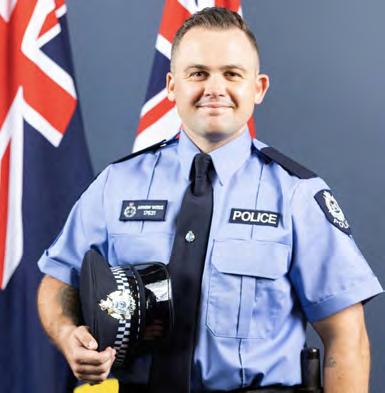
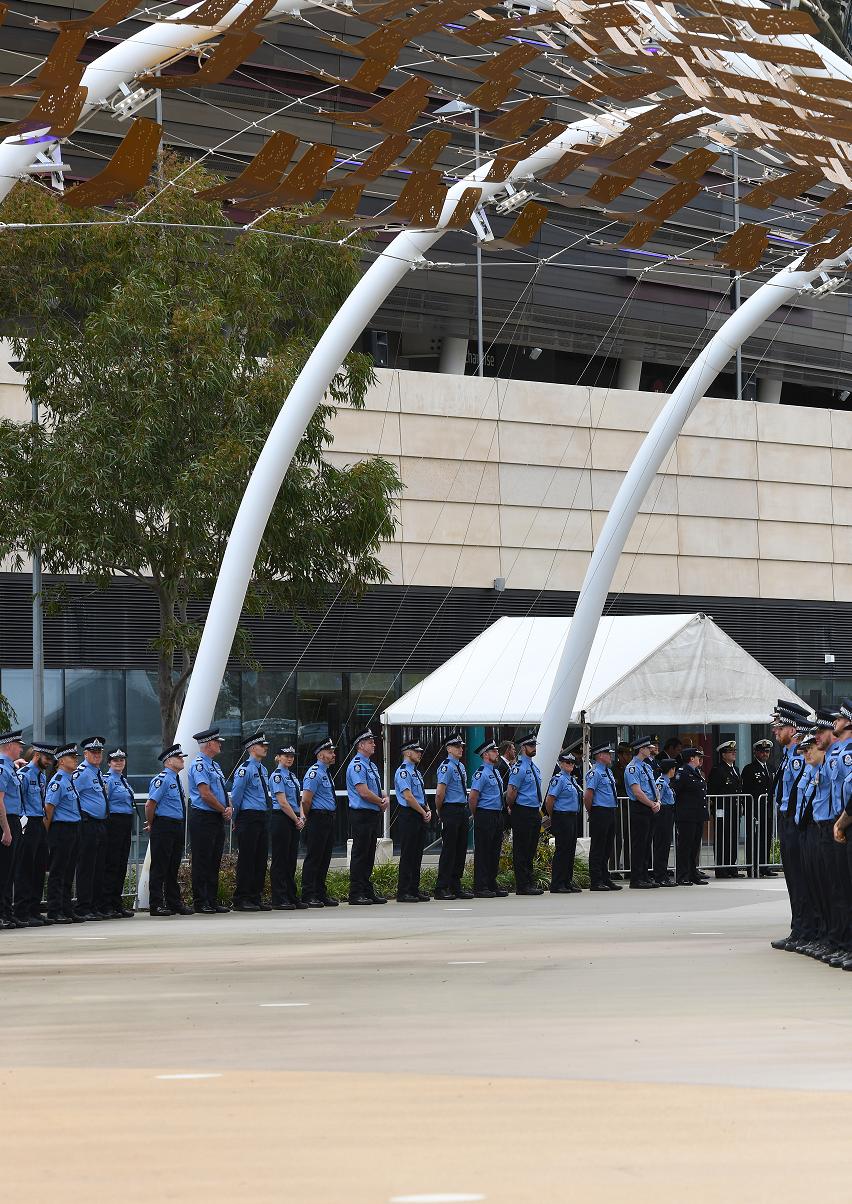
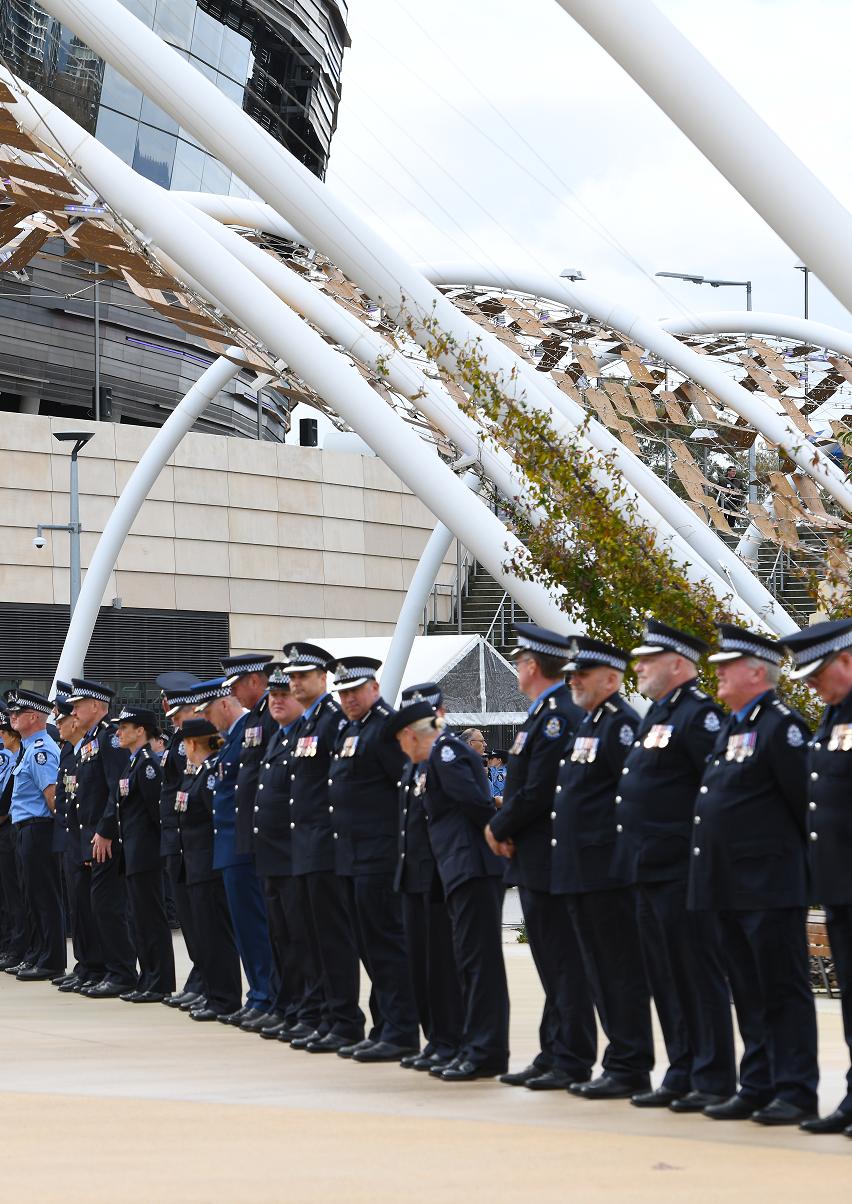
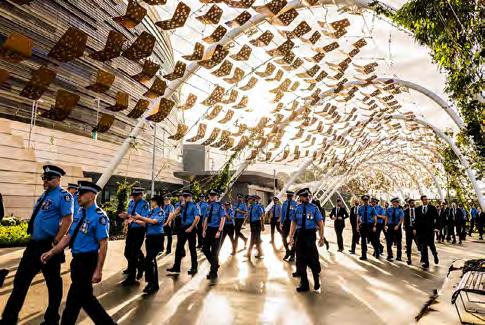

More than 300 Australians develop diabetes every day, which is equal to an alarming rate of 1 person receiving a diagnosis every 5 minutes1 – and the police community are diagnosed with type-2 diabetes at a higher rate than the general population.
Diabetes is a multi-faceted disease where there is too much glucose in the blood. The body can’t make enough insulin or is not effectively using the insulin it does make.
Over time high glucose levels can damage blood vessels and nerves, resulting in long term health complications including heart, kidney, and foot damage.
Weight control, a healthy diet with low cholesterol and physical activity help reduce your risk of diabetes.
But, for the exhausted police officer, who works shifts (often nights), these aren’t easy to master.
According to ex-officer and acclaimed author, Dr Gilmartin, “police experience an elevated adrenal cortical sympathetic stress response, causing the liver to release glucose. The pancreas responds by secreting insulin to allow glucose to enter the cell.”
Diabetes is the leading cause of blindness in working age adults 2
High or variable blood sugar due to diabetes impacts the eyes through fluctuations in vision, and diabetic retinopathy – a condition which has the potential to cause severe vision loss.
It affects blood vessels in the retina (the light-sensitive layer of tissue in the back of your eye)3
It can present without symptoms in its early stages, but if left untreated, it can result in vision that is blurred, patchy or distorted 2
This can impact day-to-day activities such as walking, reading and watching TV.
Regular eye examinations with an optometrist can detect signs of diabetes as well as ensure that diagnosed diabetes is remaining well-controlled.
1 in 20 Australians have diagnosed diabetes, but studies have shown that many Australians are living with undiagnosed type 2 diabetes3.
This means that regular health checks are vital in ensuring any undetected diabetes is found and treated.
Regular eye tests as directed by your optometrist are essential, with or without the presence of diagnosed medical conditions.
Police Health offer members generous optical benefits, which you can roll over unclaimed Annual Maximums from one calendar year to the next.*
For police officers, there needs to be an even greater focus on eating well to manage blood glucose levels.
weight.
Medication is often required to support the body’s processes.
Low sugar and carb diets are preferable. For inspiration choosing foods, meal plans and serving sizes, visit diabetesaustralia.com.au.
This can help busy officers plan their meals in advance. Specialists can help workers construct specific eating plans and exercise regimes that are realistic to manage with evolving shifts.
For your own peace of mind, visit policehealth.com.au
*Waiting Periods, Annual Maximums, Rollover Maximums and other conditions apply.
Sources
1 Diabetes Australia. Diabetes in Australia (2023).
2 Australian Institute of Health and Welfare
3 Diabetes Australia
4 National Eye Institute
5 Vision Australia. Diabetic Retinopathy (2023).
6 Diabetes: Australian Facts. Australian Institute of Health and Welfare (2023).
Regular exercise will complement this, helping to lower blood pressure and
To join more than 65,000 other members of Australia’s police community already enjoying peaceof-mind from Police Health’s goldtier insurance, call 1800 603 603 or visit policehealth.com.au


Please note: some information in this article has been compiled from material obtained externally. Although we make every effort to ensure information is correct at the time of publication, we accept no responsibility for its accuracy. Health-related articles are intended for general information only and should not be interpreted as medical advice. Please consult your doctor. The views expressed in articles are not necessarily those of Police Health.
Ph: 1800 603 603 | www.policehealth.com.au
According to ex-officer and acclaimed author, Dr Gilmartin, “police experience an elevated adrenal cortical sympathetic stress response, causing the liver to release glucose. The pancreas responds by secreting insulin to allow glucose to enter the cell.”
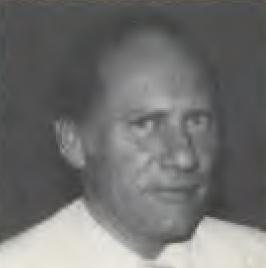
Forty years ago, an elderly woman was savagely killed in her Canberra house. In a unique turn of events, the killer was arrested by police, before they realised a killing had occurred. The original version of this article was written for, and published in, the Australian Police Journal (APJ) in 1986. It is re-published here (with the permission of the APJ) to educate and inform AFPA members about good policing principles. While legislation and legal procedures evolve with the passage of time, the underpinning principles of good policing remain constant –including professionalism, proactiveness and attention to detail.

all over the city and that his head was 'buzzing'. These details together with time, date and place were recorded in the Constable's notebook and made mention of two Constables Haldane and Comyn.
The relevance of time plays an important role in people's lives, more so with police who literally from the first moment they enter a police training academy, are instructed to record in their notebooks, for evidentiary purposes, Time, Date and Place of any incident they attend.
Time factors present themselves in the case of Bernard John Broadhurst, for at 4.00 p.m. on Thursday 31 March 1983, he was apprehended by Constable Paul Marshall in the inner Canberra suburb of Braddon, in a drunken state. Constable Marshall who had just ceased duty summoned assistance and shortly after Senior Constable Haldane and Constable Comyn arrived and took charge of the 'drunk'.
At the initial time of apprehension, Broadhurst's speech was disjointed and he 'raved-on' about 'bombs' being planted
Broadhurst was conveyed to the city watchhouse where at 4.15 p.m. he was charged with the minor offence of being drunk in a public place. Comment was made about Broadhurst's mental and physical state, he was shabbily dressed with shoulder length red hair all tangled and knotted and had weeping lacerations to both arms.
Prior to being placed in the cells, he was examined by the Australian Federal Police (AFP) Forensic Medical Officer, Dr. Smyth, but due to his suspect mental state the examination was performed with the office door open and Constable Comyn standing by.
During this examination Broadhurst's speech had improved to an extent that his sentences made reasonable sense, though as they continually referred to 'bombs', 'gas in my head' and of 'killing an old lady', little relevance was placed on them at the time.
At the time of his arrest Broadhurst, aged 39 years, was well known to police as having a long history of alcohol related offences and usually kept company with 'skid-row' types boozing on bottles of cheap wine whenever in possession of money.
After seeing Broadhurst safely locked away in the cells, Constables Haldane and Comyn resumed their city patrol activity and at 4.50pm were directed to attend a possible 'break' offence at 20 Donaldson Street, Braddon. At this location the officers noted that considerable force had been used on the door, a top glass pane was broken but to all intents no access had been gained. Bloodstains were evident on the broken pane and doorstep indicating that the perpetrator had cut himself. Notes were taken and Scientific Squad members alerted together with members attached to the Fingerprint Bureau.
As these members were completing their documentation of the 'break' scene, they received a further radio call redirecting them to attend 33 Doonkuna Street in relation to the discovery of a deceased female.
This radio call was received at 5.14pm and was simultaneously directed to the shift supervisor Sergeant Lawlor.
Constables Haldane and Comyn arrived 'just around the corner' at 5.19pm less
than a minute before Sergeant Lawlor. Both Constables were shown into the kitchen by the deceased's daughter, where on the floor lay the body of Mrs Marie Elizabeth Peisley, a 77-year-old widow who lived alone except for a dog as a companion. Visual observations of the body and kitchen surrounds were made, both officers noted blood stains on the victim's hands, dress, spots on the refrigerator and on the backdoor.
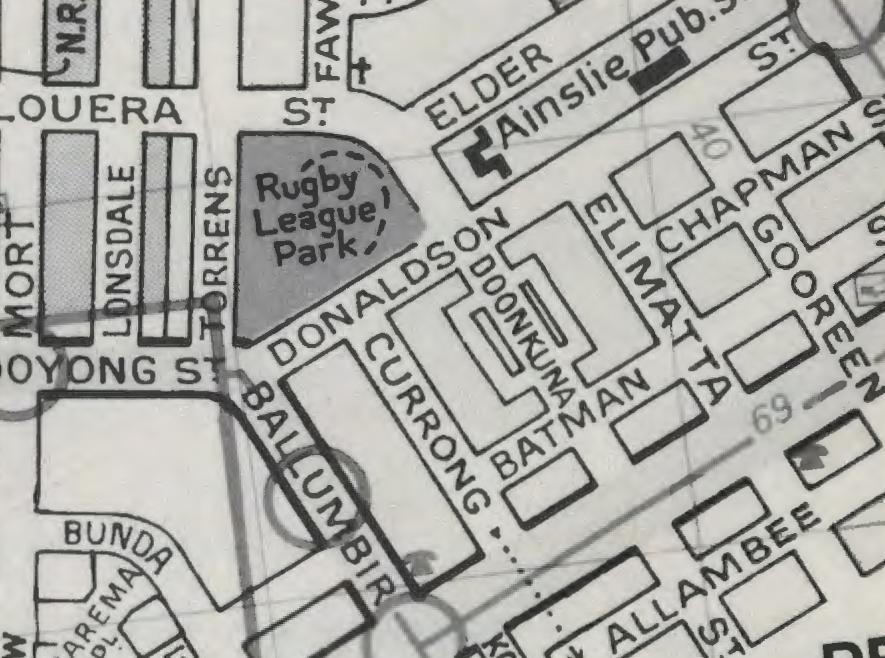
The officers also noted a slight abrasion beneath the lower jaw and 'mottling', bruising on the deceased's neck. The deceased's daughter spoke of her mother having a bad heart and gave this as the cause of death. However, the officers had already formed another opinion, one which indicated foul play. Nowhere in the kitchen was there evidence of where the blood came from, the unusual manner in which the body lay and where was her faithful companion, the dog? A search of the remainder of the house located the dog in the loungeroom behind a closed door; in this room more bloodstains were to be found.
The officers quite prudently sought specialist assistance from members attached to the Criminal Investigation Branch and Scientific Investigation Unit. However before they arrived Constable Haldane recalled an earlier conversation with Dr. Smyth and promptly made a
telephone call to the latter (from the house) in relation to the ravings and medical examination of the 'drunk' he examined an hour before. Constable Haldane was to pass the content of this conversation on to the attending C.I.B. members, Detective Senior Sergeant Brian Lockwood and Detective Senior Constable Eriksen who arrived at the scene shortly after.
A house-to-house doorknock was instituted of the near vicinity which revealed considerable information and evidence pertaining to the movements of the suspect (Broadhurst) prior to 4.00 p.m. and is summarised below:
◾ 2.20pm – Mrs Peisley was seen by her next door neighbour (31 Doonkuna Street) standing at her gate. (The last person to see her alive.)
◾ 3.10pm – Broadhurst attended Flat 5/54 Elimatta Street where he harassed and literally 'assaulted' an 81-year-old woman who answered his doorknock. (No doubt had this woman been alone, she may have been Broadhurst's victim.)
◾ 3.15pm – Broadhurst attended 1 8 Donaldson Street where he was confronted by a Psychologist's receptionist (a male patient was present) but left these premises after being asked what he wanted. (Both
these above parties were able to give excellent descriptions of their unwelcome visitor which fitted the suspect Broadhurst.)
◾ 4.15pm – Miss Trainor of 20 Donaldson Street returned home to find the glass pane in her front door broken and blood spots on the doorstep. She attended 1 8 Donaldson Street where she telephoned police, hence Constables Haldane and Comyn's presence in the vicinity of the murder scene.
At the murder scene, members of the Scientific Unit were busily engaged in obtaining exhibits in the form of blood samples, fingerprints and with the taking of photographs. With these aspects concluded the victim's body was removed to the morgue for a post-mortem examination. Samples of blood were also taken from the glass and doorstep at 20 Donaldson Street.
Meanwhile Detectives armed with the information gained from the doorknock inquiry and the information passed onto them by Constable Haldane (of Broadhurst's appearance and lacerations at the time of his arrest and medical examination) considered it expedient to return to the watchhouse and confront the incarcerated suspect.
At 8.45 p.m. Broadhurst was removed from the cells and informed that police were making inquiries about the death of an old lady. Because of Broadhurst's suspected mental condition the officers prudently arranged for a further medical examination to be carried out prior to any further questions being put. Broadhurst agreed to all the officers' requests and at the subsequent examination, a blood sample was taken, his clothing removed and various samples were removed from his head, fingernails and genital region. The examining Doctor agreed that Broadhurst was in his opinion capable of answering direct questions and therefore fit to be interrogated.
Broadhurst's clothing, body samples, samples taken from the deceased's premises together with the deceased's clothing and blood sample taken from 20 Donaldson Street, were taken to the Division of Forensic Medicine in Sydney, and handed to Dr. Joy Kuhle for scientific examination and analysis.
Following the Doctor's examination of Broadhurst, he was taken to an interview room where he was again told that police were making inquiries into the death of an old lady for which he may have been responsible.
To further questions to clarify 'they', Broadhurst became agitated and answered "the voices in my head", "it's going to blow up", "there are bombs everywhere", "the voices told me to kill women and children". At this juncture Broadhurst leapt to his feet and pointing to the desk, exclaimed, "That desk has got radar in it, it's blowing my head off!" Broadhurst, holding his head between his hands, was asked to have a look at the desk, to which he replied, "It doesn't matter, it's built-in, I can still feel the radio waves, hurry up we are all going to be blown up".
The Detectives calmed Broadhurst down by suggesting going to another interview room. Broadhurst agreed to this move and on entering the second interview room, he claimed that it was the same as the first.
The detectives, being resourceful officers, agreed to take him to yet another interview room, knowing it to be devoid of furniture except for one chair on which he (Broadhurst) was seated and the interview re-commenced.
Broadhurst admitted his complete involvement in the murder of Mrs. Peisley, describing quite lucidly his movements and how he took hold of the deceased by the neck, but in looking away when he applied the pressure. In respect to his admissions in relation to the voices telling him to kill children, Broadhurst answered, "I couldn't kill children, they've got a life to lead but old people don't matter".
At the initial Petty Sessions hearing before Mr. Dainer S.M. on the day following the murder, a strange twist of interests was to occur in that when police sought an order for a psychiatric assessment of the accused (Broadhurst) it was hotly opposed by his defence counsel on the grounds that if an examination were to be ordered before a plea was entered, it should be the defence not the prosecution which should order it. However defence counsel said that in view of the prosecution's application, he would arrange for an assessment to be conducted. Mr Dainer made no order in relation to the assessment and remanded Broadhurst in custody pending his trial before the Supreme Court.
The result of this examination indicated that Broadhurst was suffering from an alcoholic brain disease with an underlying paranoid schizophrenic illness.
When Detective Lockwood directed the question, "Do you know anything about the death of this lady?", Broadhurst answered, "Of course I do, I had to do it, they
At the conclusion of the interview, Broadhurst was taken back to the watchhouse where he was formally charged with the offence of murder. Arrangements were made for Broadhurst to undergo a full psychiatric examination on the following day.
On 8 August 1983 Broadhurst was brought before Mr. Justice Gallop and a jury of 10 men and two women where he entered a plea of not guilty. The Crown prosecutor, Mr. Reg Marr, told the jury that it might regard the circumstances surrounding the death of Mrs. Peisley as “very bizarre indeed”. Evidence was presented that Broadhurst was seen in the neighbourhood, a glass door panel with blood droplets of the same grouping as Broadhurst's and fingerprints identified as matching the accused were found at the murder scene.

Additionally forensic analysis of blood traces and hairs found on the accused and the deceased's clothing matched.
Mr Marr stated that the defence of mental illness was available to Broadhurst but he would have to satisfy them that he had been mentally ill at the time of the alleged offence, and that he did not know what he was doing was wrong.
At the conclusion of all the evidence and completion of legal submissions, (the latter relating to insanity) the jury recorded their verdict of not guilty on the grounds of insanity at the time of the commission of the offence. Mr. Justice
Broadhurst understood fully the import of this question and was initially agreeable to participate saying, "You don't have to keep telling me that!"
told me to do it".
Gallop had the last say in reference to "TIME" when he sentenced Broadhurst to be held in strict custody in an institution for the criminally insane until the Governor General's pleasure be known.
The writer of this article wishes to acknowledge the help and co-operation of all the officers who took part in the investigation and whose names do not appear in the text.
On Sunday 17 December 1995 The Canberra Times reported that Broadhurst had just been released back into the community, on the order of the ACT Mental Health Tribunal. The Tribunal found Broadhurst to be no longer insane, nor did he represent a threat to the community. During the tribunal’s deliberations, the family of Mrs Peisley submitted they wanted to be sure Broadhurst would not, and could not, return to his old drinking habits.
The Mental Health Tribunal had recommended Broadhurst’s release on six occasions between 1992 and mid-1995 but the ACT Government had rejected each one. The ACT Government did not object to the late 1995 recommendation.
Upon release, Broadhurst moved to the Newcastle area in NSW. He was initially ordered to be closely supervised by a social worker, undertake regular psychiatric consultations, and be totally abstinent from alcohol (alcohol testing) and non-prescription drugs.
Crime scene reconstruction – Broadhurst indicates to detectives how he committed his crime.
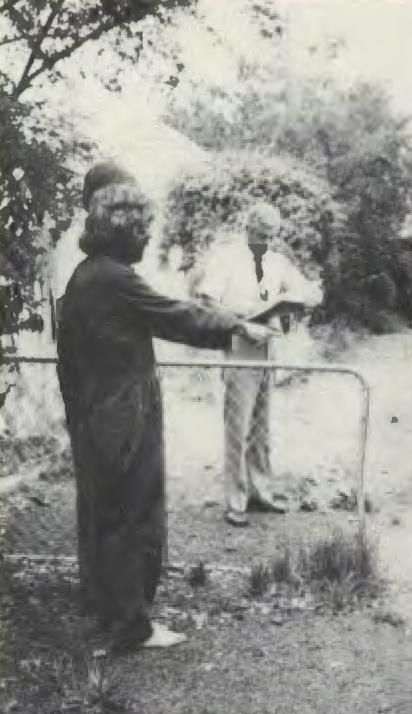
To further questions to clarify 'they', Broadhurst became agitated and answered "the voices in my head", "it's going to blow up", "there are bombs everywhere", "the voices told me to kill women and children". At this juncture Broadhurst leapt to his feet and pointing to the desk, exclaimed, "That desk has got radar in it, it's blowing my head off!"
The International Police Association is a body of serving and retired police officers linked by a professional esprit de corps. The most extensive police association in the world, the IPA has almost 372,000 members. The IPA is a friendship organisation for members of the police family (both current and former), without distinction in rank, position, gender, race, language or religion.
Over 372,000 members in over 100 countries, of which 65 are affiliated with National Sections, and represented on five continents. The International Police Association promotes and encourages cultural relations, the expansion of knowledge through the exchange of professional experiences, mutual help in the social field, and the promotion of world peace.

Membership of the IPA is open to any sworn member of the AFP.
(The IPA annual membership fee is $20, plus a one-off $30 application fee, which is tax-deductible for serving members.)
1. The IPA membership card provides discounts and many other benefits in Australia and around the world.
2. IPA membership provides many opportunities to travel (as part of a group or individually) and meet other members worldwide. IPA friendship weeks are particularly popular, offering travel assistance and discounted accommodation (as an example, the Austrian IPA helped organise two QPS IPA members’ ski accommodation in St Anton for 22 Euros a night).
3. Members benefit from the hugely popular IPA Houses and other accommodation options. These are located around the globe and are available for IPA members to stay in. Exclusive accommodation at IPA Houses is available in 21 countries (including Berlin, Paris, New York, Dublin, Luxembourg, Venice, Brussels, Durban, Tel Aviv, and St Andrews (Scotland).
4. The historic IPA Training Centre, located in the woodlands and mountains of Germany, is a unique and memorable location for furthering members’ education and has various seminars to choose from. IBZ Castle Gimborn, located in
idyllic wooded mountainous surroundings in Germany, houses the IPA's Education and Information Centre and is widely regarded as the flagship of the Association. www.ibz-gimborn.de
5. Each year, the prestigious Arthur Troop Scholarship is awarded to applicants worldwide—a recognition framework to fund serving police officers wishing to study policing methods in a country of their choice.
6. Members can participate in sporting tournaments and events worldwide, with everything from table tennis to football and cycling to marathons on offer.
7. The Young Police Officers' Seminar is for serving officers who wouldn’t usually have the option to travel due to their junior status or budget constraints. Most members attending these biennial events are aged 35 or under and are provided with an overview of the IPA and law enforcement globally. A subsidy from the international budget is provided to the organising section to keep costs affordable.
8. The IPA has many active interest groups, from motorcycling meetups, the Guinness Forum, collectors' clubs, self-defence groups and skiing enthusiasts.
9. Meeting foreign police officers visiting Australia, or experiencing a ride-along when visiting US or British police departments.
10. International Youth Gatherings (IYG) represent a chance for the children or grandchildren of IPA members to participate in an action-packed 2-week programme. Hosted annually by alternating IPA sections, around fifty 16-17-yearolds are invited to attend and enjoy various activities to
The IPA’s motto is 'Servo per Amikeco' – "Service Through Friendship."
encourage an 'international spirit', with the IYG held in a different country each year (Switzerland in 2013, France in 2014, Spain in 2015, USA in 2016, South Africa in 2017, United Kingdom in 2018 and Croatia in 2019), with two Australian attendees subsidised by IPA Australia.
11. The Hobbies Bureau assists members in collecting police memorabilia, patches, badges etc.
12. Youth exchanges are organised between different countries.
13. L astly, the IPA facilitates international home swaps
The easy way to join the IPA now is via the online membership application form available at: http://www.ipa-australiapolice.com.au/about/ join-ipa.php or www.ipa-aus.net.au
I was born in the Illawarra, NSW, and have worked throughout Australia and overseas. I joined the Australian Defence Force Academy in 1991, ultimately becoming an Aeronautical Engineer with the Fleet Air Arm of the Royal Australian Navy. After some time with the 723 Squadron at HMAS Albatross, I was posted to the Naval Aviation Systems Project Office in Canberra.
Seeking alternative career options, I joined the Australian Federal Police in 1999, after I had completed my time with the Permanent Navy as the Base Technical Officer at HMAS Watson. I transferred to the Standby Reserve in late June of that year.
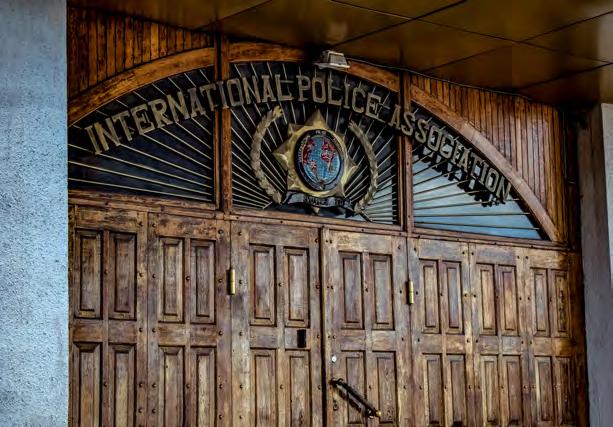
As a sworn police constable and eventually a sergeant, I worked in a broad set of policing activities, ranging variously from General Duties/Community Policing, High Tech Crime/Cyber, Online Child Exploitation, Surveillance, Ceremonial, International Development/Peacekeeping, Operations Coordination/ Management and Public Order. These functions have seen me deployed around the world to such locations as the Solomon Islands, New Zealand, Sierra Leone, and Christmas Island.
I joined the IPA in 2008, intending to travel, which is where IPA membership can be really valuable. I actually was on a European holiday with my family in 2016; we stayed at the IPA house in Paris, which was just far enough out of the city to be out of the rat race but close enough to provide great access. We were met by Claudine, who was lovely and really helpful, as much as my schoolboy French would allow.

Since joining, I found that the IPA comprises a really great bunch of people. This led to me taking a more active role, having been ACT Region Chairperson and ACT Vice-Chairperson at various times. Currently, I'm the latter.
Throughout my career, I have remained a member of the Royal Australian Navy Reserve. In 2017 I commenced duties with the Defence Force Recruiting Centre in Canberra, a rewarding role with a direct contribution to ADF future capability.
In 2019, suffering burnout, I separated from the AFP and pivoted back to full-time ADF Reserve service. Since then, I have worked with the Defence Flight Safety Bureau to contemporise a key aviation safety publication (the ASMS Guidebook) and then with Navy International Engagement as the SO3 Asia Pacific, coordinating the Navy to Navy Talks with the Republic of Singapore Navy.
Most recently, I have been working on a side project with my current employer and the AFP Veterans’ Association to provide career pathways and assistance to police members moving on from policing. In this, the IPA and similar organisations are important silent partners as they provide that valuable "connection" and ongoing sense of identity for those who have served the community.
I would like to congratulate the latest tranche of Australian Police Medal (APM) recipients. All have been recognised for long careers highlighted by exceptional service to the community. I thank them for this service and their continued membership of the AFPA.
Five AFPA members – Assistant Commissioner Krissy Barrett, Acting Assistant Commissioner Joanne Cameron, Superintendent Jason Byrnes, Sergeant Mark Spence and Sergeant Keith Taylor –were all awarded the APM.
Assistant Commissioner Barrett started her AFP career in 2001 as an Investigative Assistant. She worked in financial management, administration, client liaison and protection intelligence before deploying to the Solomon Islands as part of the AFP’s first contingent of the Regional Assistance to the Solomon Islands (RAMSI) in 2003.
In 2005, she started training to transition to a sworn member and joined ACT Policing on her graduation, where she later became the first Patrol Sergeant to work part-time after starting a family. She completed a research study in 2015 into gender roles in frontline policing.
Since then, Assistant Commissioner Barrett has worked in fraud and anti-corruption and money laundering and was ACT Policing’s Deputy Chief Police Officer Capability and Community Safety before relocating to the AFP’s Melbourne office as Commander Operations. In 2021, she was promoted to Assistant Commissioner Southern Command.
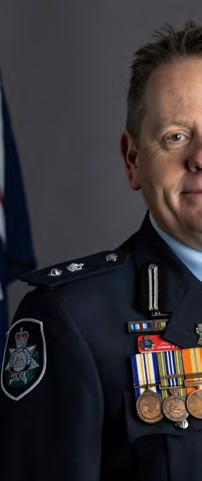
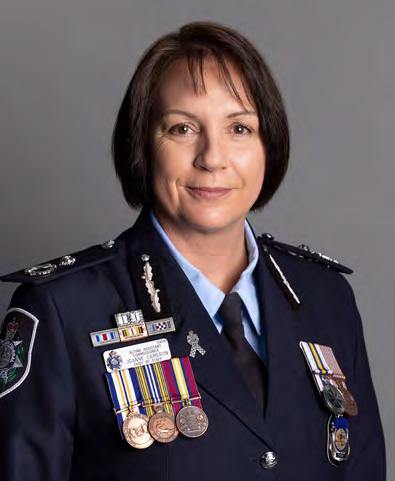
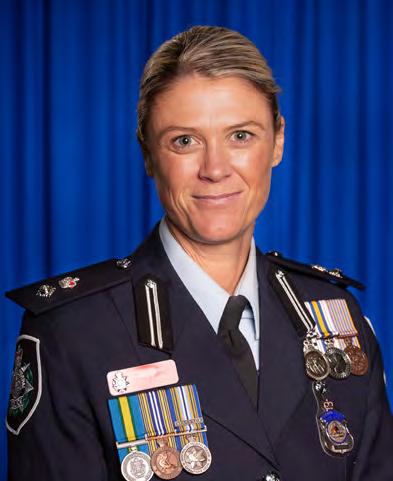
Assistant Commissioner Barrett now leads the Counter Terrorism and Special Investigations Command and is the first woman in the AFP to be appointed to the position.
Acting Assistant Commissioner Cameron began her AFP career in 1997 and has held various positions including in ACT Policing general duties, criminal investigations, intelligence, family violence and community safety, and in policing development and innovation.
In 2021, Acting Assistant Commissioner Cameron led ACT Policing’s COVID-19 Taskforce, where she worked closely with ACT Health to enforce local health directions.
Acting Assistant Commissioner Cameron is now in the role of Chief of Staff, working closely with the AFP Commissioner.
Superintendent Byrnes has been a member of the AFP for 32 years, working in ACT Policing general duties, was the manager of the AFP’s Cairns office, and worked within Internal Audit and Business Analysis, Professional Standards, and the International Deployment Group.
Over the course of his career, Superintendent Byrnes has worked internationally, including in Cyprus to support the United Nations mission for peacekeeping, Afghanistan, and Malaysia and played a key role in the establishment of the Regional Assistance Mission Solomon Islands.
Since 2020, Superintendent Byrnes has been responsible for recruit and regional training, ensuring AFP recruits are equipped with the skills and knowledge to become successful police officers. He led the unit through the COVID-19 pandemic, and despite the challenges, saw a record number of graduates pass through the AFP College in 2021 and 2022.
Sergeant Spence has been recognised for his role in ensuring the AFP maintained its core functions during the COVID-19 pandemic while protecting the safety and security of staff.
He led both the AFP’s Operation Protect Coordination Centre and the Centre of National Resilience in the Northern Territory, where he supported the security of the facility to allow for the safe and secure repatriation of Australian citizens.
Sergeant Taylor has served in the AFP for 35 years and is the team leader of crime scenes in the AFP’s Western Command in Western Australia, a position he has held since 1998.
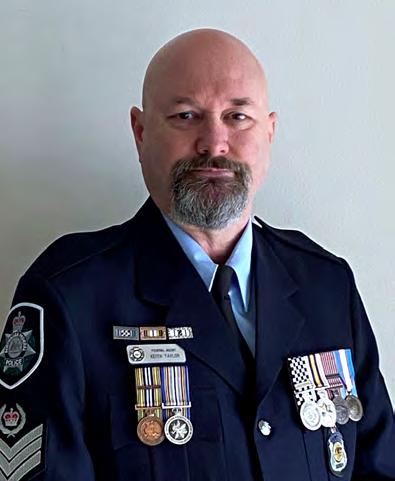

He has led the forensic response and operational delivery in highprofile investigations covering counter-terrorism, disaster victim identification operations, drug operations and international responses. He was involved in the law enforcement response to the Bali Nine case in 2005, the downing of MH17 in Ukraine in 2014, the missing flight MH370 and Operation Ironside.
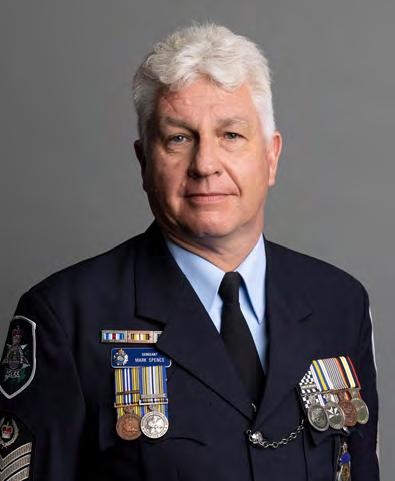
Sergeant Taylor has dedicated the majority of his career to forensics, where he has provided mentoring and leadership, and directly contributed to successful frontline policing outcomes.
Again, congratulations to all recipients on this significant milestone in your careers.
In unity, Alex
Caruana PresidentFive AFPA members – Assistant Commissioner Krissy Barrett, Acting Assistant Commissioner
Joanne Cameron, Superintendent
Jason Byrnes, Sergeant Mark Spence and Sergeant Keith Taylor –were all awarded the APM
Starting a family can be an exciting time, however, it doesn’t always go to plan. In Australia, one in six couples experience difficulty falling pregnant at some stage in their family planning journey. Infertility can affect anyone. Overall, one-third of infertility cases are caused by female reproductive issues, one-third by male reproductive issues and the other third by combined or unknown factors.
It can be hard to know when to seek help with your family planning journey. If you are aged 35 years or over and have been trying to conceive for six months or more or are under 35 and have been trying for 12 months or more, without success, then it may be time to seek help. Assisted reproductive technologies (ART) such as in-vitro fertilisation (IVF), have been helping people to have babies for over 40 years.
If you find yourself needing assistance to start your family, the amount of information available to you can be overwhelming. IVF treatment is available at over 80 fertility clinics across Australia that are accredited by the Reproductive Technology Accreditation Committee of the Fertility Society of Australia and New Zealand. To book an appointment with a fertility specialist you must have a referral from a General Practitioner (GP). Fertility treatment can be physically, emotionally and financially demanding, so it is important to find a clinic and specialist that is right for you.
Choosing an IVF clinic is a very personal decision, there are many factors that need to be considered. It is important to look at each clinic as a whole, the range of treatment options, the clinic success rates, the qualifications of the fertility specialists, counselling options, cultural factors, location, accessibility, wait times and costs. For most people, cost will rank as one of the most important factors.
When considering IVF, it is important to note that it will likely require multiple cycles. According to VARTA, Victoria’s statutory authority on assisted reproductive technologies, a 36-37 year old woman has a 32% chance of having a baby after one cycle of IVF, a 44% chance after two cycles, and a 50% chance after three cycles. Many couples underestimate the number of IVF cycles needed to achieve a successful pregnancy and therefore the cost.
Cost can be a major barrier and cause of stress for many Australians seeking fertility treatments. The perception that IVF has to cost over $10,000 for one cycle is simply not true.

There are bulk-billed private clinics that offer high quality treatment at a more affordable price point so do shop around.
There are a range of treatment options available which vary from clinic to clinic. Your specialist will recommend a treatment plan tailored to your needs. This plan may include one or more of the following options.
Ovulation induction/Ovulation tracking (OI/OT) Medication may be used to stimulate ovulation and your cycle tracked with blood tests and ultrasounds which informs the best timing for intercourse and then hopefully conception.
Intrauterine insemination (IUI)
This involves the insertion of prepared sperm obtained from the male partner or donor into the woman’s uterus. IUI assists with irregular menstrual cycles and sperm abnormalities.

Intracytoplasmic sperm injection (ICSI)
ICSI can be used to overcome a number of male fertility problems. Sperm is injected into the cytoplasm of the mature egg in a culture dish, with the aim of achieving fertilisation.
With IVF the sperm and eggs are brought together in a culture dish in the laboratory where they are monitored, allowing the eggs to hopefully fertilise, and embryos to develop before being transferred back into the uterus.
A frozen embryo transfer is a cycle where a frozen embryo (from a previous fresh IVF cycle) is thawed and transferred back into a woman’s uterus.
The range of treatment options available to assist those planning for a family can also include egg freezing. Recognising that a woman’s egg reserve diminishes in both quantity and quality over time, this is a great option for women who choose to start a family later in life.
Many clinics also provide the option to use a donor. This offers a wonderful alternative for those who are unable to use their own sperm or eggs, those in same-sex relationships or those seeking to become a solo parent. A popular option for same sex female couples is reciprocal IVF or egg sharing, meaning one partner provides the eggs and the other partner carries the baby.
Funded by the Australian Government, yourivfsuccess.com.au is Australia’s only independent source of information showing IVF success rates for each IVF clinic. Not only can you compare success rates across clinics in your location but the website is a good source of information for those wanting more information about IVF.
Adora Fertility is offering Australian Federal Police Association members priority booking for all initial appointments. In addition, a 20% discount* on the cost of elective egg freezing is available at all Adora clinics. Please contact Adora at www.adorafertility. com.au/contact-us and mention your membership of AFPA to receive this offer. *discount available on first elective egg freeze cycle only (valid for treatment commenced prior to 30 June 2024)

Adora Fertility is one of Australia’s leading providers of affordable fertility treatments. At Adora, we bulk-bill the majority of eligible fertility related services covered by Medicare. Our aim is to be as transparent as possible when it comes to what you will actually pay. We take the time to thoroughly explain all the fees and out-of-pocket expenses you will incur during your fertility treatment. Out-of-pocket expenses may be reduced further for those with private health insurance. At Adora, out-of-pocket costs are typically less than $2,000 for a fully stimulated IVF cycle. We provide affordable IVF without compromising on quality.
We opened our first clinic in Surry Hills in 2014 and in June 2023, we reached the milestone of 10,000 babies born. We offer a comprehensive range of treatment options which has recently expanded to include a Known Donor Program. As part of this program, patients can access affordable fertility treatment with donated sperm, eggs or embryos from a self-recruited donor known to the patient.
Adora Fertility has one clear goal, to provide you with a world of fertility expertise at a fraction of the cost.
DETAILS
Send via: Internal Mail Express Post (Cost $20 incl. GST for max 5kg) Hold for Collection
Subtotal ($): Express Post ($): Total ($):
Type: Visa Mastercard
OFFICE USE | Processed by
Please return completed order forms to the AFPA by email: afpa@afpa.org.au
See over the page for the Merchandise order form
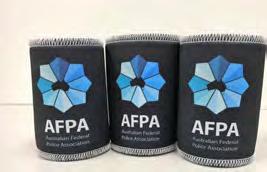
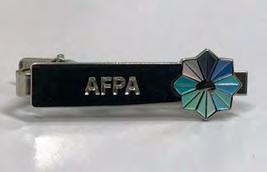
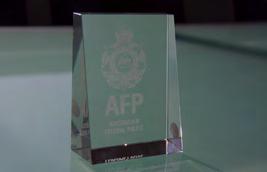
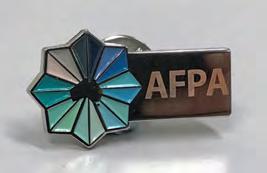
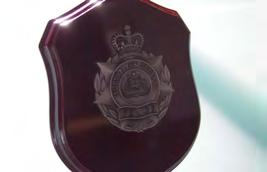
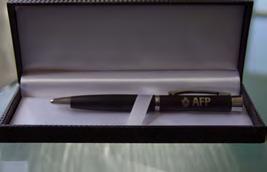

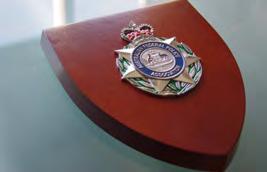




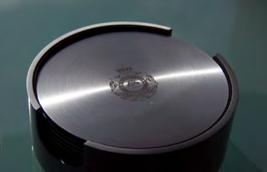


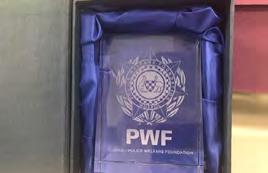
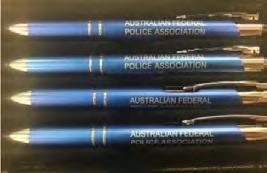 Coloured Shield Plaque | $70.00
Key Ring | $18.00
Coaster Set | $40.00
AFPA Pen | $10.00 each
AFPA Stubby Holder | $7.00
Australia Plaque | $75.00
Stubby Holder | $10.00
Cuff Links | $25.00
AFPA Silk Woven Tie | $25.00
AFPA Plaque (Glass) | $85.00
AFP Plaque (Glass) | $70.00
Tie Tac (coloured, silver, gold) | $10.00
Gloss Mug | $17.00
AFPA Tie Bar | $12.00
AFP Plaque (Pewter) | $70.00
Pen | $20.00
AFPA Lapel Pin | $7.00
Coloured Shield Plaque | $70.00
Key Ring | $18.00
Coaster Set | $40.00
AFPA Pen | $10.00 each
AFPA Stubby Holder | $7.00
Australia Plaque | $75.00
Stubby Holder | $10.00
Cuff Links | $25.00
AFPA Silk Woven Tie | $25.00
AFPA Plaque (Glass) | $85.00
AFP Plaque (Glass) | $70.00
Tie Tac (coloured, silver, gold) | $10.00
Gloss Mug | $17.00
AFPA Tie Bar | $12.00
AFP Plaque (Pewter) | $70.00
Pen | $20.00
AFPA Lapel Pin | $7.00